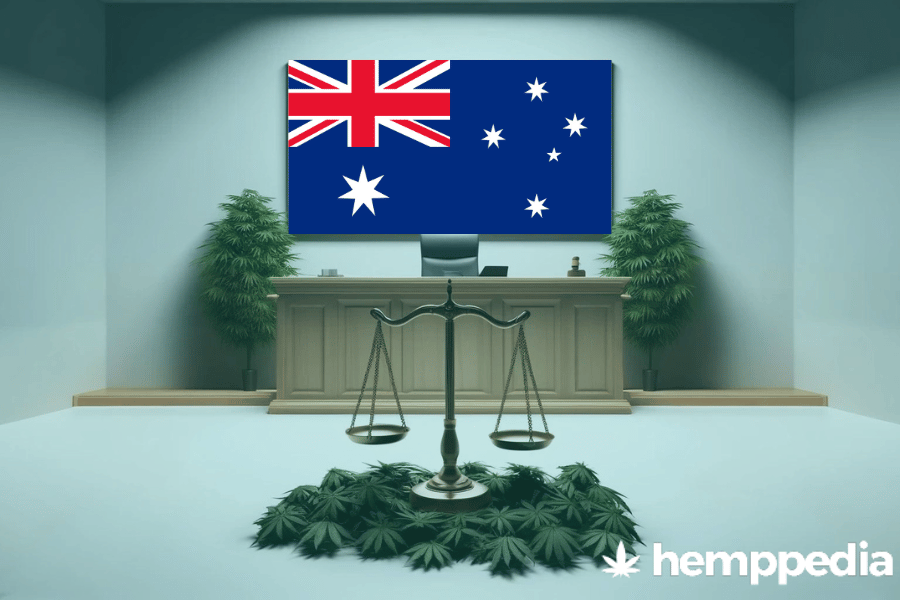TL;DR
In the global climate of shifting views towards cannabis, the situation with Cannabidiol (CBD) in Australia remains somewhat complex. Though CBD is a non-psychoactive compound derived from cannabis, its legal status has been under scrutiny. As of 2021, CBD is technically legal, albeit highly restricted.
Key Legal Aspects:
- Usage: As a prescription medicine. Over-the-counter if the daily dose is 150mg or less.
- Possession: Legal with a valid prescription.
- Distinction from THC: Unlike THC, CBD is non-psychoactive and considered a controlled substance, not an illegal drug.
CBD, or cannabidiol, is derived from the cannabis plant and is primarily used for its potential therapeutic benefits without the ‘high’ associated with its sister compound THC (tetrahydrocannabinol). Consequently, the laws around CBD are often distinct from those concerning other forms of cannabis.
Overview of CBD Legislation
Key Terms
CBD is a compound found in the cannabis plant, renowned for its potential health benefits. The main difference between CBD and other forms of cannabis, such as marijuana, is that CBD lacks the psychoactive effects usually associated with cannabis use due to low or nonexistent THC content. The terms full-spectrum and isolate refer to the type of CBD product, with the former containing all naturally occurring compounds from the plant, including THC, and the latter containing only CBD.
Legal Landscape
Since the beginning of 2021, the Australian Therapeutic Goods Administration (TGA) has classified low-dose CBD (up to 150mg per day) as a Schedule 3 substance, allowing it to be purchased over-the-counter without a prescription.
Legal Status and Regulatory Bodies
Both federal and state laws apply to the possession, use, and sale of CBD in Australia. The TGA is the primary governing body, enforcing strict controls over CBD products and ensuring their safety, efficacy, and quality.
Conditions and Restrictions
CBD products must have a THC content of less than 1%, be manufactured by a Good Manufacturing Practice (GMP)-certified producer, and must be sold in containers restricting daily dosage to 150mg or less.
Historical Context
Legal access to CBD began in 2016 under the Special Access Scheme (SAS). Originally, CBD was classed as a Schedule 4 substance (prescription only), but in 2021 the TGA moved it to Schedule 3, allowing for over-the-counter purchase of low-dose CBD products.
Possession, Use, Cultivation and Sales
CBD can only be legally possessed and used with a valid prescription, except for products containing 150mg or less per day dosages, which can be obtained over-the-counter. The possession and cultivation of CBD-producing hemp plants is also restricted and requires special licensing.
Import and Export
Importing and exporting CBD products also follow stringent regulations, requiring permits and declarations to ensure that they meet quality standards and contain no more than the permitted level of THC.
Enforcement and Penalties
Possessing CBD without a prescription, or CBD products with higher THC content than the legal limit could lead to penalties, with severe cases possibly facing charges under the Narcotics Drugs Act 1967. However, medical use is exempted from these restrictions as long as the patient has obtained a valid prescription and the drug is used for the condition specified on the prescription.
Comparative Analysis
In comparison to places like the United States, where CBD is mostly legal and widely used, Australia’s regulations are quite restrictive. However, the uphill trend in CBD legalisation indicates possible future changes to these laws.
Conclusion
While CBD is technically legal in Australia, its usage is shielded by an array of regulatory safeguards. The legal framework is continually evolving, keeping pace with research outcomes and shifting societal views on cannabis.





